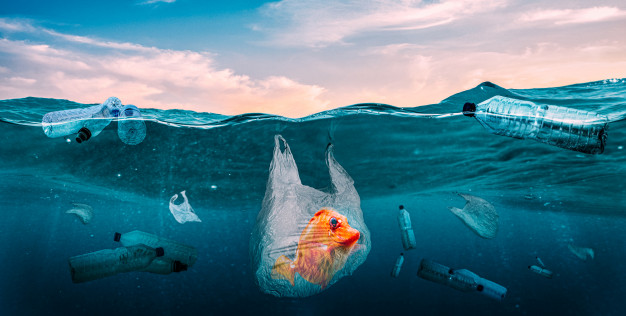Plastic is considered to be one of the biggest environmental threats to the health of the planet and survival of life on it.

The World Wide Fund For Nature states that the average uses South African 30kgs-50kgs of plastic per year. A quantity amounting to half the plastic produced and used in South Africa ends up in waterways and oceans. The pollution of these waterways and oceans not only negatively impacts wildlife and vegetation in these areas, it also negatively impacts the livelihoods of people that depend on these water-based ecosystems.
While plastic poses an objectively big threat to the health of the planet and life on it, the use of plastic further exacerbates the environmental crisis currently facing our reality. We are unnecessarily reliant on a particular class of plastics which is referred to as single-use plastic.
This class of plastic includes bottles, snack packets, balloons, earbuds, wrappers, straws and so many more. While we may think that is enough to throw our plastic waste into the dustbin, it is highly likely that we are doing more harm and good as we have little knowledge or control over the ways which our waste is disposed. Most of the time, that plastic we throw into the dustbin with all other waste ends up on overflowing landfills, illegal and unregulated dumping grounds, or strewn haphazardly in transit to these dumpling locations. Weather patterns also play a role in how plastic waste ends up in waterways and oceans, as strong winds blow these light materials towards and into these ecosystems.
Key players in the environmental sector have been working on initiative in an effort to eliminate the unnecessary use of plastic. According to Business Tech, the South African government has been increasing levies on the purchase of plastic carry bags over the years. These levies have amounted to 33 cents in increases since 2004. Businesses such grocery stores have even taken a no-plastic-bag stance, encouraging customers to carry their items in reusable bags which have more durable materials. But these efforts are not enough to curb the environmental crisis caused by plastic. It is also up to us as individuals to play our part.

So, here are a few easy and doable steps in creating a plastic-free South Africa.
- Purchasing Plastic-based Products: Avoid buying items that are packaged in single-use plastics.
- Sectioning Your Waste: When throwing you waste away, create another section dedicated to the recycling of plastics, paper, glass, aluminium and steels.
- Waste Can Be Remixed: Many recyclable items can be repurposed. Consider exploring ways of repurposing your recyclable waste before throwing them away (even if that waste is taken care of by a recycling organisation).
- Changing Your Favourite’s Business Models: Use the connections you have created with your favourite shops to reconsider their relationship with plastic and propose ways they can become more eco-friendly, without compromising their bottom line.
- Get Organisations In Your Community: Speak to eco-friendly organisations about establishing recycling efforts in your neighbourhood or community if recycling is not yet a reality.
- Hold Your Government Accountable: Speak to your local municipality about its recycling efforts and encourage your municipality to collaborate with your community in making it more eco-friendly.
- Volunteer: Take an hour or two out of your day to clean up your community. Or, volunteer at an eco-friendly organisation that deals with the elimination of unnecessary waste.
South Africa is facing a mammoth eco challenge. Dealing with this challange requires a joint effort from every corner of our society. The task we face is immense, but this reading this article has, hopefully, demonstrated that this task can be tackled and won.
It starts with us all.


